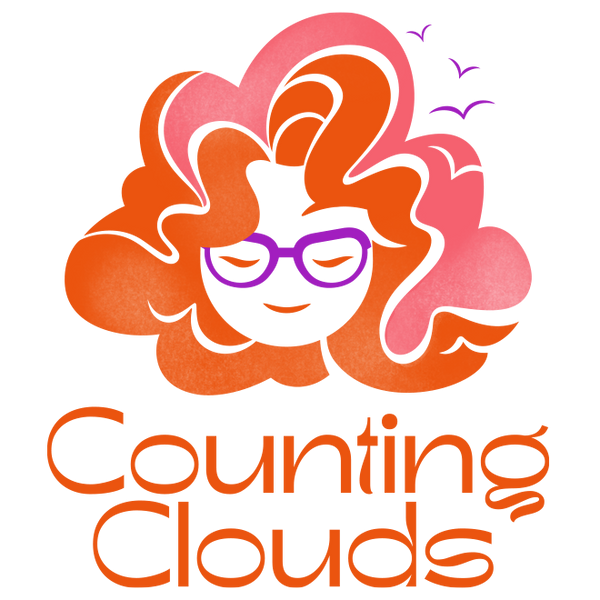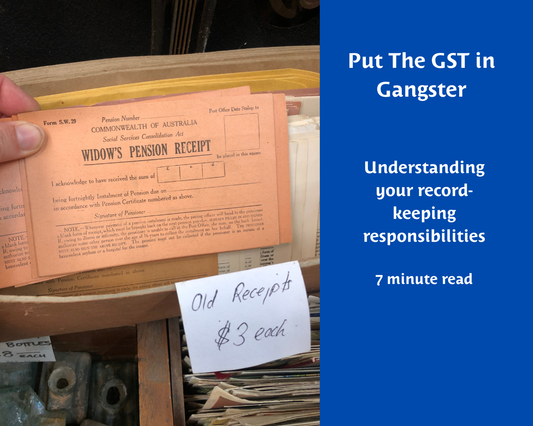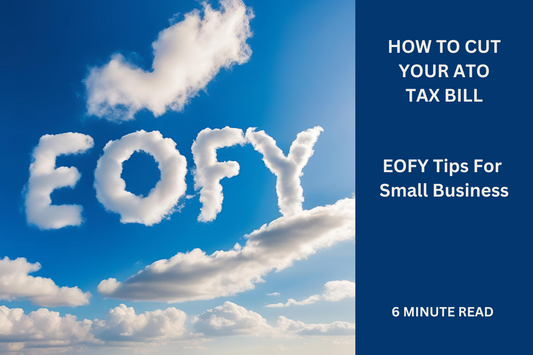EOFY Tips For Small Business
At Counting Clouds, we really look forward to our end of financial year party! It’s a new year in a way and a fresh start.
Before we party though, it’s time for some financial housekeeping and assertive action. We want our clients to be in their best position, tax-wise, before EOFY. Here are our top tips on actions to take before June 30th to cut your small business ATO tax bill.
Financial Position Check
Before you start EOFY spending, check yourself before you wreck yourself! Clear any ATO debts, and clear any liabilities, such as outstanding superannuation accrued by employees. Then confirm your financial position, using financial reporting. This will mean you're better able to weigh up the options explored further down for reducing your tax bill. We can help with the following reporting tools.
Profit & Loss Reporting
Are you actually in profit? Cash in the bank doesn’t necessarily mean profit. To confirm profit, you need to dig deeper than your bank statement. A profit and loss (P&L) statement summarises business revenue, costs and expenses over a period of time. It shows your financial performance and profitability.
There’s no doubt that even keeping your head above water in any business is a huge achievement, but confirmed profits can help you when enlisting support. Investors, creditors and other stakeholders, like grants programs and funding bodies, will want to see your business performance and profitability before backing you. Don’t let your cash burn a hole in your pocket, diminishing your confirmed profits in a financially unhealthy way.
Cash Flow Forecasting
Cash flow forecasting enables you to see months ahead into your likely financial future, based on your history of income and expenses. Use it to make sure that the money you spend now won’t be money you need down the track for bills, leave liabilities or other necessary expenses.
Get a sense of how steady your cash flow can be, or how it tends to fluctuate. Do you have funds put aside for growth opportunities or unexpected circumstances? Having a buffer can provide financial serenity, which is a valuable mental asset.
Debt Review
Review your debtors list. Chase late payments, engaging a debt collector if needed. If there are any invoices you foresee are not going to be paid, they can be written off as bad debts, lowering your taxable income and thereby your tax bill.
Income Deferral
Instead of invoicing customers and clients immediately, consider waiting until the next financial year begins. This will shift the recouping of income into the next financial year, lowering your taxable income for the current financial year and reducing your impending tax bill.
The viability of this measure depends on your cash flow, the impact it will have on increasing next year’s tax bill, and the amenability of your invoice recipients.
Please note, the invoice recipient should be made aware of this measure, especially if it’s a marked change to your usual terms of payment. It would be detrimental to your business to put a client or customer offside by negatively impacting their cash flow or shocking them with a bill they had forgotten about due to the delay.
Expense Prepayments
The ATO’s definition and rules pertaining to prepaid expenses are a little complicated, so here are some quotes from the ATO’s general information about prepaid expenses:
“A prepaid expense is expenditure you incur under an agreement for something to be done (in whole or in part) in a later income year.”
“Generally, a prepaid expense is deductible over the ‘eligible service period’.”
“The eligible service period is the period during which the thing is to be done under the agreement in return for the expenditure.”
Small businesses can claim an immediate deduction under the ATO’s ‘12-month rule’ for prepaid expenditure if:
- The payment is incurred for an eligible service period not exceeding 12 months
- The eligible service period ends in the next income year.
Certain types of expenditure are excluded from the prepayment rules. Please check with your accountant as to the validity of potential prepayments before taking prepayment action.
April-June Quarter Superannuation Payments
Can you spare a quarter? If you wish to claim the full financial year deduction for your employees' superannuation in the upcoming tax round, it's recommended that your April-June quarter super payment is processed by June 17th in order for it to reach the super funds before June 30th.
Note: The April-June quarter payment technically isn't due until late July but, if it reaches the super funds after June 30th, you won’t get the deduction until the end of next financial year.
Instant Asset Write-Offs
For the 2024-25 financial year, small businesses with aggregated turnover of less than $10 million can deduct the full cost of asset purchases of $20K or less. The $20K threshold applies on a per-asset basis, so multiple assets of up to $20K each can be written off.
Please note that this $20K limit was issued as a temporary increase to the prior instant asset write-off limit of $1,000. For financial years following 2024-25, you should check the limit before purchasing assets to write off.
Please also read the ATO guidelines on instant asset write-off for eligible businesses to check that your purchases will be eligible.
Dividends & Bonuses
Paying yourself a dividend or paying your employees a bonus are also ways to lower the taxable income of your business. Bear in mind though that these will affect you or your employees' personal taxable income amounts.
Charitable Donations
If you'd like to donate to a good cause, please be aware that not all donations to charities are tax deductible. Many charities might be worthy of your support but, in order to claim a deduction, the charity must be a DGR (Deductible Gift Recipient). The ATO guide to gifts and donations has further details.
If you’d like us to help you with tax planning, please email us on help@countingclouds.com.au




